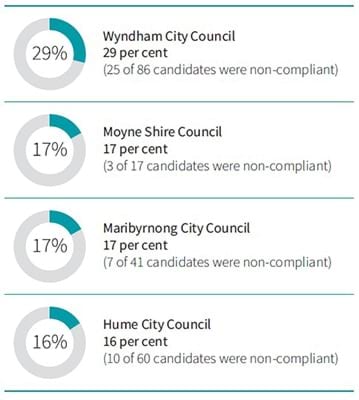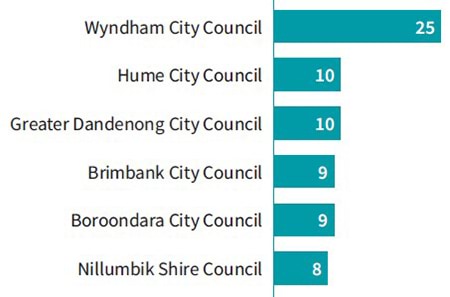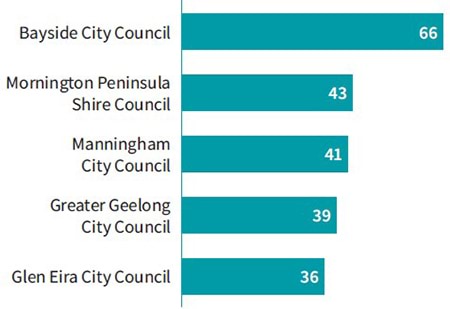“There are only a handful of members of our ratepayers association. It is a fringe group. The ratepayers association funded the campaigns of six candidates but only one candidate declared it.”
– Councillor re-elected in 2020
A campaign donation return is a record of gifts, donations or in-kind support worth $500 or more received by election candidates for use in their campaigns. If candidates did not receive any donations or support, they must still complete and send a return, noting ‘No disclosable gifts’, to the CEO of the council where they are standing for election within a strict time.
Under section 306 of the Act, a candidate must give an election campaign donation return to the CEO within 40 days after election day.16 The return must be in a prescribed form and must detail any gifts worth $500 or more received by or on behalf of the candidate during the donation period. However, this does not include gifts for personal use or not used for election purposes.
Section 307 requires a council CEO to submit a report to the Local Government Minister stating the names of candidates in the election and the names of candidates who submitted a return under section 306 within 14 days after the period specified in section 306(1).17
A council CEO must also ensure that a summary of each election campaign donation return is published on the council’s website.
The purpose of these sections is to ensure ongoing integrity and transparency in the sector. The transparent disclosure of campaign donation returns by all candidates during the election period is fundamental to maintaining the integrity, of not just the elections but more importantly, the future decision-making and governance of councils.
“They need to fix the donation system. It is a system which is based on honesty and if people aren’t honest, that is where it ends. Candidates could have to submit a statement of what they spend on and where they spent it. At least there would be some rigor in the system.
“There is a loophole in campaign donations. Councillors should have to complete the circle, not just have what they say taken at face value.”
– Councillor re-elected in 2020
In 2016, the CEO written donation reports showed that 288 candidates, more than 13 per cent of all candidates, failed to submit their returns to the CEO by the 1 December 2016 due date and 40 of the 288 did so after the deadline.
After the 2016 election period, 15 candidates who were unable to provide a valid reason for non-submission were prosecuted. After receiving a complaint about two more candidates and assessing information in their returns, those candidates were prosecuted or false or misleading information with one receiving a 12-month good behaviour bond and the other case withdrawn.
In 2020, 2,042 candidates handed in a compliant return and 144 were considered non-complaint, a non-compliance of 6.6 per cent. This was almost half the non-compliance rate for the 2016 election period.
In 2020, the highest percentages of non-compliance came from four council areas:
The highest numbers of non-complying candidates were:
There were four candidates who did not submit a campaign donation return in 2020 or in 2016.
On a positive note, all candidates in 37 council areas submitted campaign donation returns. In addition, the following councils had high numbers of candidates who correctly all submitted campaign donation returns:
16. Section 306 is listed in full in Appendix 2.
17. Section 307 is listed in full in Appendix 2.
Updated




